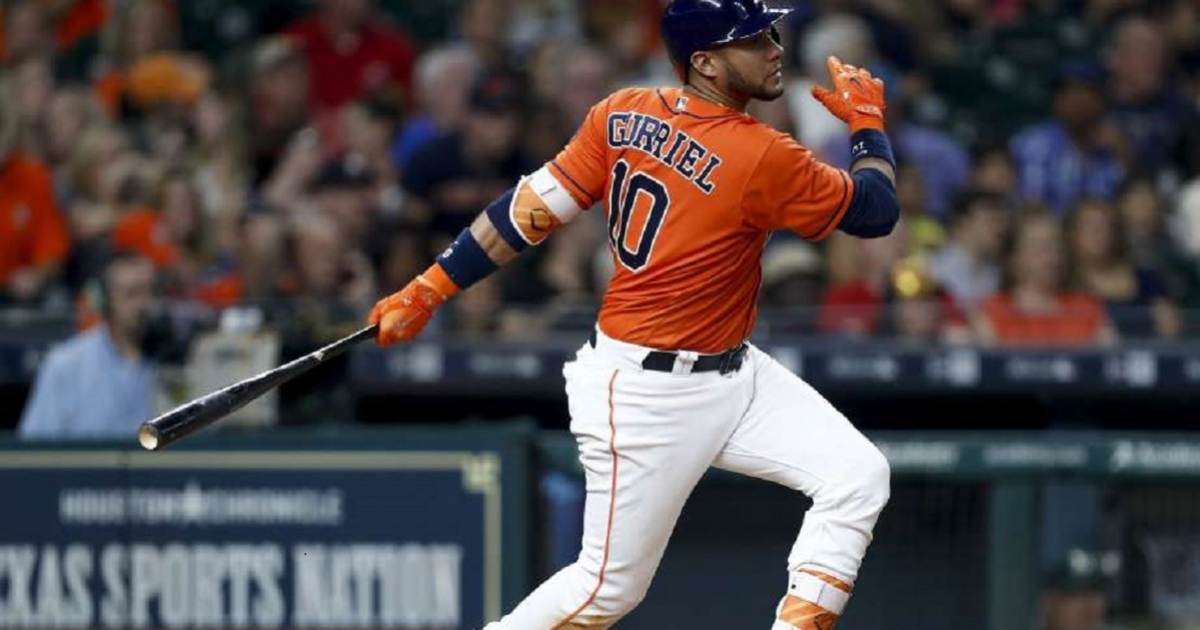The idea of creating an independent Cuban baseball team to participate in the next World Classic, launched in March by the Association of Cuban Professional Ballplayers (APCBP), has served as a pretext for the regime to bring up the agreement it had signed with Major League Baseball (MLB) in 2018, later blocked by then U.S. President Donald Trump.
Since then, the island's sports authorities have lost no opportunity to grumble about the loss of that contract, from which they expected to obtain handsome benefits. But the reality is that Cuban baseball players do not need the mediation of the Government —that is, the state-owned Cuban Baseball Federation (FCB)— to obtain lucrative contracts in the premier baseball league in the world, or in other foreign ones.
The recent statements by the recently inaugurated president of the Federation, Juan Reinaldo Pérez Pardo, show that they do not need to be linked to the island's sports authorities to be called up to the national teams.
Wielding the same argument that has been repeated by the regime to defend the agreement, Perez Pardo said that "a natural relationship between the FCB and the MLB" would avert "illegal travel, trafficking of athletes and discriminatory conditions faced by ballplayers interested in playing in The Show."
What are the "discriminatory conditions" faced by ballplayers interested in playing in the Major Leagues? Who deprives Cubans of permanent residency in their country after 24 months abroad? Who strips athletes of the right to return to their homeland for having left teams abroad, as evidenced by Yulieski Gurriel being denied entry?
As for the "illegal travel and trafficking of athletes" from which the regime claims to be protecting athletes, for a long time ballplayers had no other way to achieve their dreams of playing in other leagues, as the regime imposed an exit permit on all Cubans to travel off the island. In fact, high-performance athletes still need "to be authorized, after analysis of each case, to travel abroad for private matters," according to Decree 306 of 2012.
To make matters worse, for a long time elite athletes did not earn enough money to afford a ticket to another country, even if they had been allowed to do so, despite their contributions to Cuba's sports results in international events.
"Illegal travel" is no longer the main via for baseball players to leave Cuba, except when the restrictions imposed by the regime leave them no other alternative. The continuous departures of prospects and already-successful players through the airport "with their heads held high," as the late Higinio Velez would say, mainly to the Dominican Republic, to make it into the Major Leagues, are proof of this.
However, the main evidence that Cuban baseball players do not need a contract between the FCB and the MLB was provided by its new president when he revealed that players who play in international leagues outside the entity's purview could still be called up to the national team.
The FCB has no choice but to open up to those players who pursue careers outside the FCB, without the FCB being able to get a penny out of them.
Faced with the idea of an independent team, the FCB has not been able to respond claiming that those playing in Cuba are enough, because in Cuba there are fewer and fewer good players left. The best are leaving, and the FCB knows that it needs them if it aspires to return to the highest levels of world baseball.
Ironically, the fact that ballplayers already have options to leave legally and land contracts in the Major Leagues, and the professional leagues of other countries, without the mediation of the FCB, such that the MLB does not need to establish any agreement with this organization subordinated to the Cuban government, allows the Federation to maintain its policy of discrimination against ballplayers who abandoned Cuban delegations abroad, regardless of the fact that they have dedicated their best years to representing their country in international competitions.
It did not matter that Gurriel was a key member of the team that took second place in the first World Baseball Classic in 2006, the best finish by a Cuban team in that tournament.
Nor that Antonio Pacheco, the Captain of Captains, played for the regime's Cuban team throughout his active years. This did not stop them from eliminating his number during the All-Star game in 2020, and striking him from the list of the best Cuban second basemen in 2014.
Cuban baseball players and all Cuban athletes should look to José Abreu, Yordan Álvarez, Jorge Soler and others whose results are passed over by the sports authorities and the official press. In fact, in one article in which its press attacks the initiative of the independent team, it acknowledges that Cuban fans still follow the performance of these athletes in the Major Leagues ... on the Internet, as neither Cuban television nor the state-run press dedicate any coverage to the play of these countrymen. If Abreu was rescued from oblivion recently, it was only to spotlight his initial rejection of the independent team.
Before negotiating again with the FCB (which is not independent of the Cuban Government, as it endeavors to have us believe) the MLB should take into account that Cuban baseball players are not subject to any discriminatory conditions except those imposed by their own Government, and that it is that Government that needs to sign the agreement to get money out of them.
